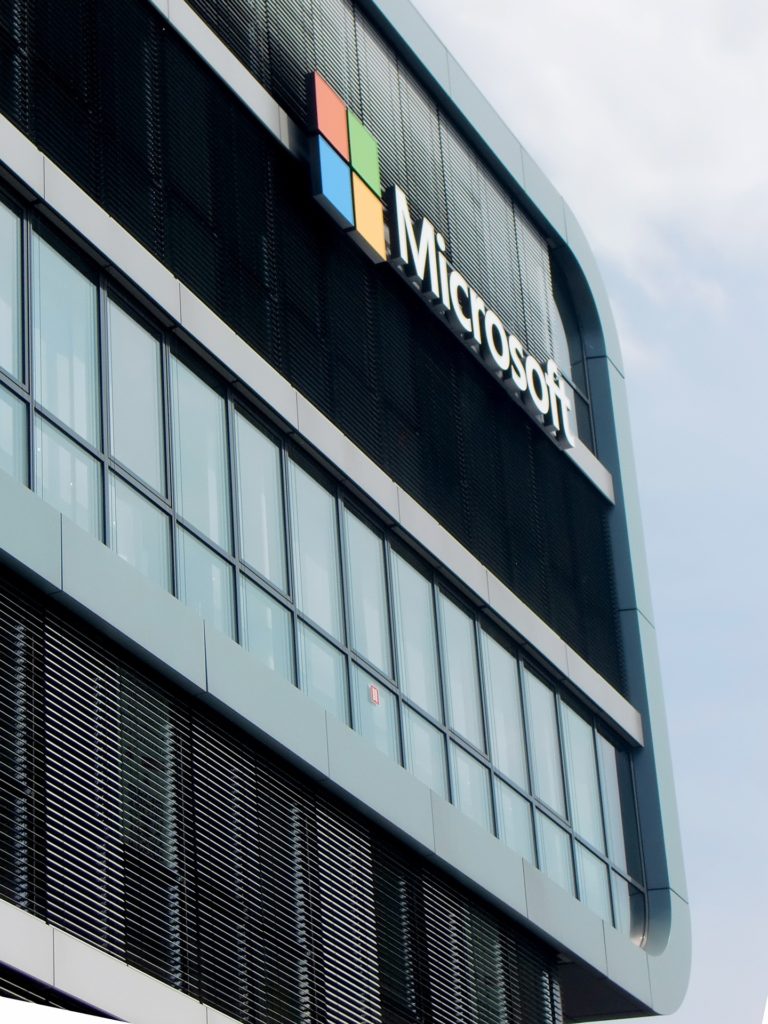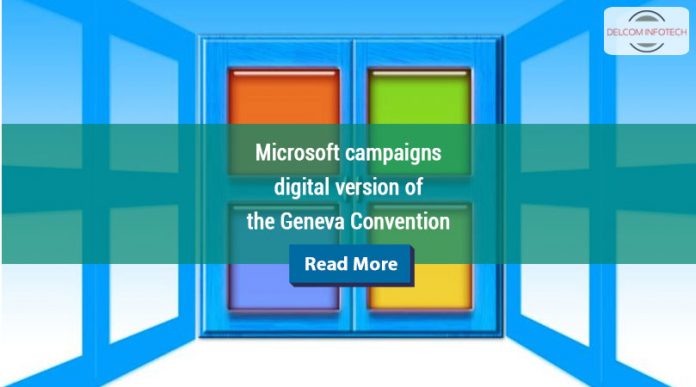 Since the start of the year, Microsoft has been campaigning on a rather interesting notion to make the cyberspace safe. It has proposed that the global cyberspace be affixed with a Geneva-like convention to fight cyberattacks and other growing challenges.
Since the start of the year, Microsoft has been campaigning on a rather interesting notion to make the cyberspace safe. It has proposed that the global cyberspace be affixed with a Geneva-like convention to fight cyberattacks and other growing challenges.
Keeping the increasing rate of cybercrime and theft as the focal point of the campaign, Satya Nadella recently remarked on how formulating a code of conduct in the cyber space is as imperative as any other sphere due to its growing significance as well as complexity. The core idea behind the campaign is to render a model similar to the Fourth Geneva Convention of 1949 that would safeguard the users against the rising malpractices in the cyber space and draw up a set of guidelines for conduct.
 While the past few years have witnessed an unprecedented growth in the use of internet, they have also offered a glaring reality of the threats that this new space involved. As per Microsoft’s estimates, cyber malpractices and threats could cost the global economy up to 3 million dollars by the year 2020. Another factor that could seriously destabilize the cyber space are the growing efforts by the governments to develop technologies to hamper and disable the internet of the rival countries. Adding complexity to the idea is the overall ability of the internet to delve into spaces such as social unrest, sedition, espionage and IP theft.
While the past few years have witnessed an unprecedented growth in the use of internet, they have also offered a glaring reality of the threats that this new space involved. As per Microsoft’s estimates, cyber malpractices and threats could cost the global economy up to 3 million dollars by the year 2020. Another factor that could seriously destabilize the cyber space are the growing efforts by the governments to develop technologies to hamper and disable the internet of the rival countries. Adding complexity to the idea is the overall ability of the internet to delve into spaces such as social unrest, sedition, espionage and IP theft.
 To safeguard these sensitive aspects as well as to fend off the growing threats in general, Microsoft is revving up its campaign and imploring nations to draft a digital Geneva Convention format. In order to back its arguments, Microsoft presents a case of the substantial investments being made by Facebook, Google and Microsoft itself, in technologies that would help to counter cyber crimes and take a step forward in their efforts to secure the cyber space.
To safeguard these sensitive aspects as well as to fend off the growing threats in general, Microsoft is revving up its campaign and imploring nations to draft a digital Geneva Convention format. In order to back its arguments, Microsoft presents a case of the substantial investments being made by Facebook, Google and Microsoft itself, in technologies that would help to counter cyber crimes and take a step forward in their efforts to secure the cyber space.
While it may not be as simple a task to go forward with Microsoft’s notion, this is not the first time the world has seen a proposition of such serious norms. Banning of ch emical weapons and regulation of atomic energy are famed examples of how new technologies can pose a serious threat and necessary steps must be taken to safeguards the interests of the civil infrastructure. Keeping the rising levels of cyber crimes in the hindsight, Microsoft’s proposition does need a serious deliberations, and with concerted efforts from all stakeholders, the idea of a safe and secure cyber space could very much become a practicable approach.
emical weapons and regulation of atomic energy are famed examples of how new technologies can pose a serious threat and necessary steps must be taken to safeguards the interests of the civil infrastructure. Keeping the rising levels of cyber crimes in the hindsight, Microsoft’s proposition does need a serious deliberations, and with concerted efforts from all stakeholders, the idea of a safe and secure cyber space could very much become a practicable approach.

